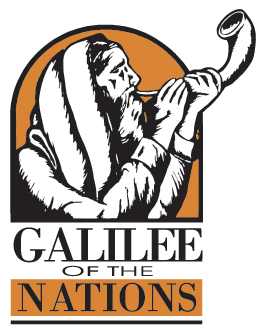
The Exploits of Judah Maccabee
Share
The Miracles, Mysteries and Histories of Hanukkah | Part 3
Hanukkah In The Book of Maccabees
So far we've seen how the prophet Daniel predicted those events that are recorded for us in the Book of Maccabees--namely the sufferings of the Jewish People at the hands of Antiochus IV--and the miraculous revolutionary response of the Hasmonean priest Matthias with his five sons, including the famed Judah Maccabee.
Judah's legacy will be highlighted here. The resistance that Judah "The Hammer" and his comrades put forth against their opponents required tenacity, courage, and faith, qualities deserving of our attention and imitation. The Book of 1 Maccabees describes Judah’s heroism, championing him as one who “brought his people [i.e. the Jews] widespread honor. He wore his breastplate like a hero. He put on his weapons, fought battles, and used his sword to protect his camp” (3:3).
In the ensuing passages in 1 Maccabees, we learn of Judah’s triumphs over Israel’s enemies, including Apollonius (3:10-12) and “Seron, the commander of the Syrian army” (3:13-24). Judah’s victories eventually reached the ears of King Antiochus, who in turn “ordered all the armies in his kingdom to assemble into one large, powerful army” (3:27) with the aim to ultimately “wipe out Israel’s soldiers and the people left in Jerusalem” so that “no one would remember that the Israelites ever lived there” (3:35). Nothing less than Israel’s complete annihilation would appease this wicked king.
But many in the Jewish community rallied around their leader, Judah, and called upon the God of Israel. They fasted and put on sackcloth, and cast ashes upon their heads and blew their shofars, seeking God for deliverance from the armies of Antiochus (see 3:46-60). God answered and provided salvation for Judah and his men, routing their enemies before them.
Then, Judah’s army returned to Jerusalem, resolved to rededicate the Holy Place and cleanse it from its defilement. From there, the attacks did not cease, so Judah had to “[order] some of his soldiers to fight the enemy troops while he cleaned the holy place” (4:41).
Intriguingly, the Talmud asserts (Shabbat 21b) that it was "on the 25th of Kislev, three years to the day after the Syrian/Greeks had defiled the Holy Temple by making it a shrine to Zeus, [that] the Maccabees vanquished their oppressors and recaptured the Temple" (Parsons).
The First Book of Maccabees recounts the events as follows:
On the twenty-fifth day of the ninth month (the month of Chislev) in the year 164 B.C., the people got up early in the morning. As Moses’ Teachings required, they offered a sacrifice on the new altar [the previous one having been defiled] that they had built. While the altar was being dedicated, people sang and played music on harps, lyres and cymbals.The dedication took place on the anniversary of the day that the foreigners had dishonored the original altar. All the people bowed with their faces touching the ground. They worshiped and praise the LORD for the success he had given them. The people celebrated the dedication of the altar for eight days (1 Mac. 4:52-56).
Another fascinating fact about the name "Maccabee:" the title could very well be an acronym of the Hebrew phrase "mi komocha ba'elim Adonai?" or "Who is like You among the gods, LORD?" That rhetorical question was first posed by Moses in the midst of a song of exultation after God's miraculous deliverance of Israel from another oppressive power, namely Egypt and their Pharoah. (See Exodus 15:11.)
A fitting name indeed, for a hero such as Judah.
Check out Part 4 of The Miracles, Mysteries and Histories of Hanukkah is entitled: The Oil.
Shalom to you from Galilee of the Nations!
